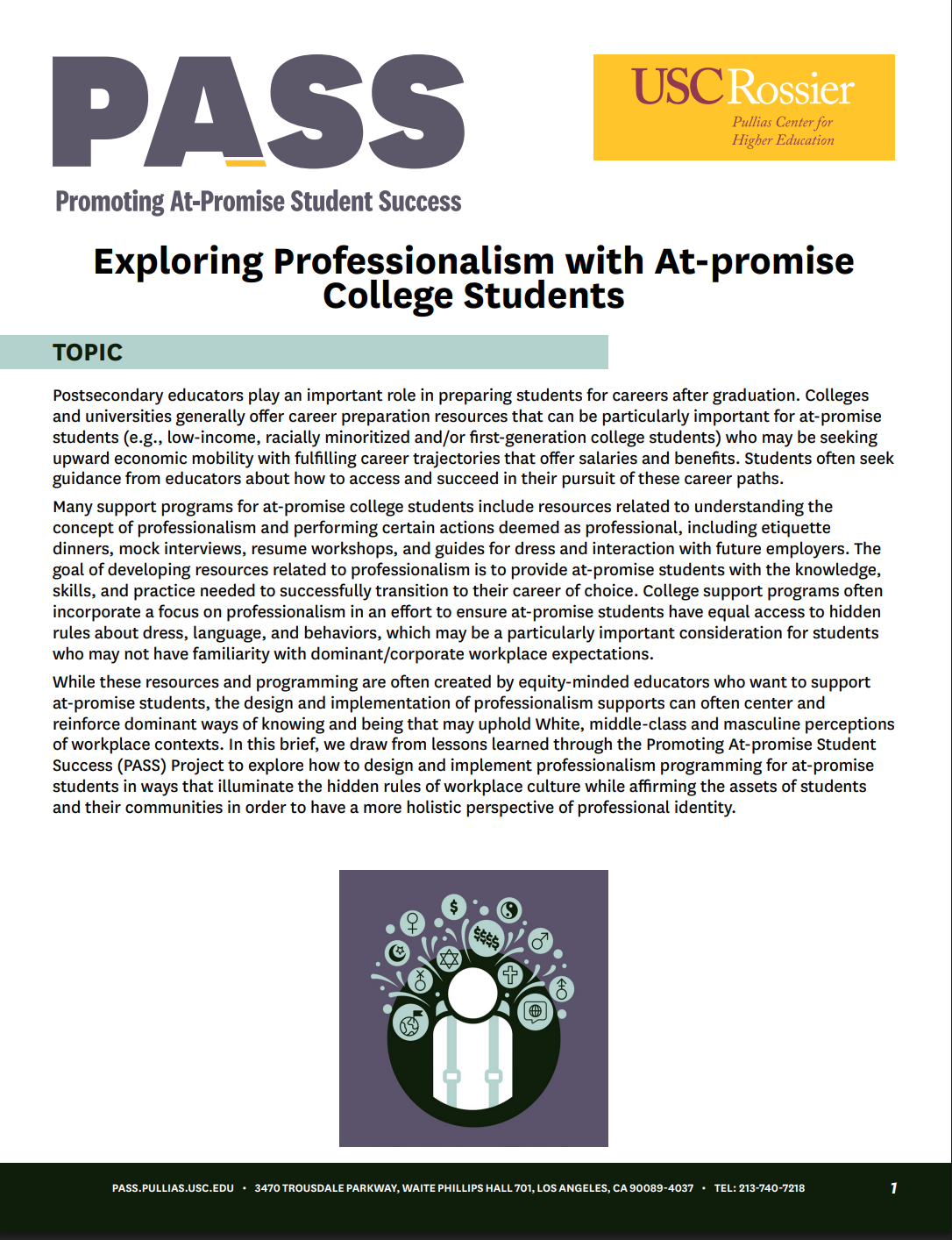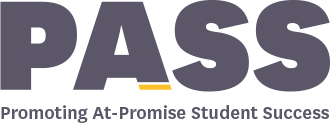Career Development
Career development and preparation is a primary reason why students choose to pursue a college education. Postsecondary educators, administrators, and stakeholders continue to look for new and different approaches to better support students’ career development and fulfill the promise of higher education as a viable pathway to fulfilling, stable careers post-graduation. In collaboration with university practitioners, PASS researchers identified innovative practices and approaches to re-envision career development in ways that better support today’s at-promise college students.
On this page, you’ll find resources for practitioners and campus leaders seeking to support at-promise students' career development, exploration, and success.
Articles
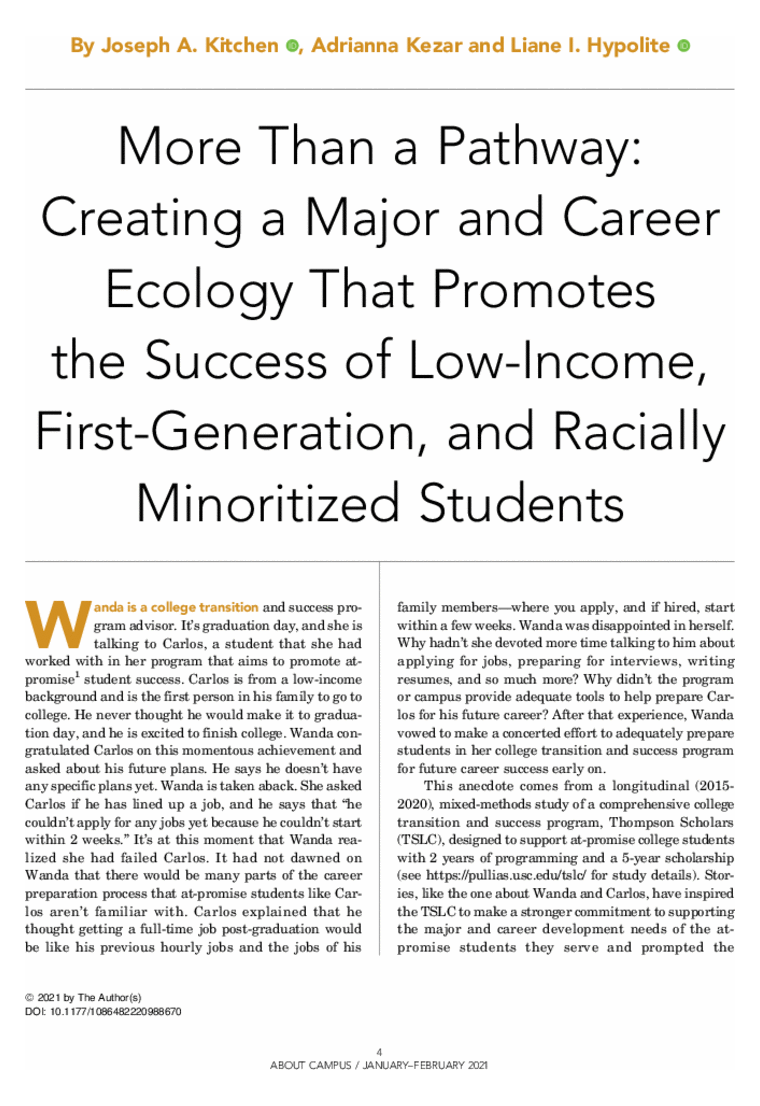
More than a pathway: Creating a major and career ecology that promotes the success of low-income, first-generation, and racially minoritized students.
Kitchen, J. A., Kezar, A., & Hypolite, L. I. (2021).
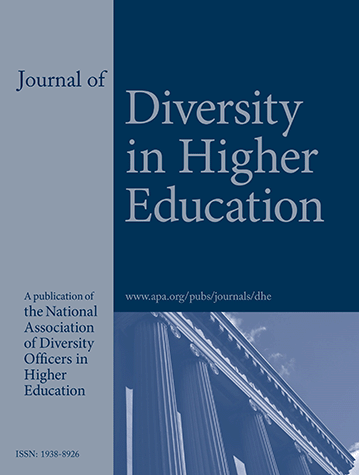
At-promise college student major and career self-efficacy (MCSE) ecology model.
Kitchen, J., Kezar, A., & Hypolite, L. (2023).
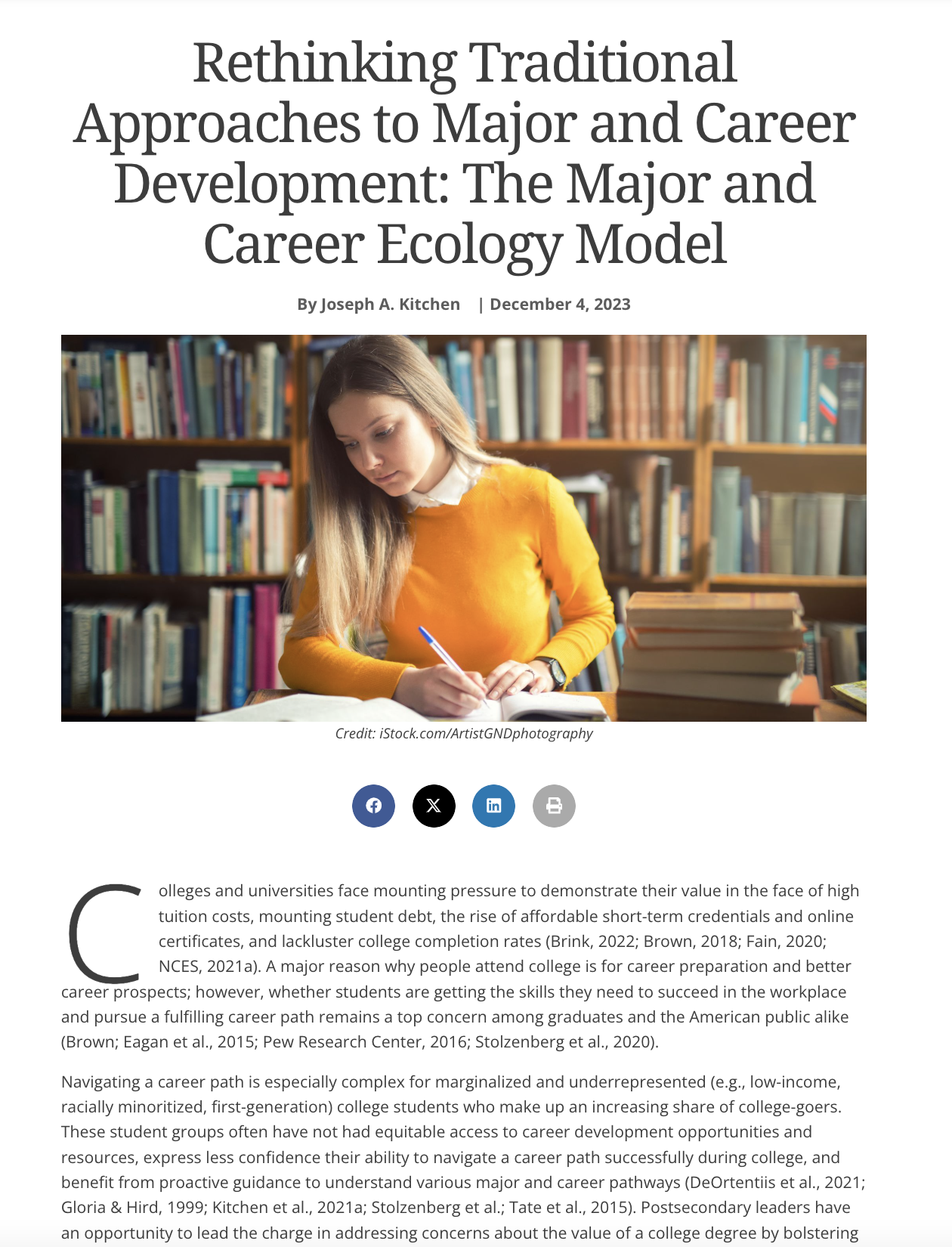
Rethinking traditional approaches to major and career development: The major and career ecology model.
Kitchen, J.A. (2023).
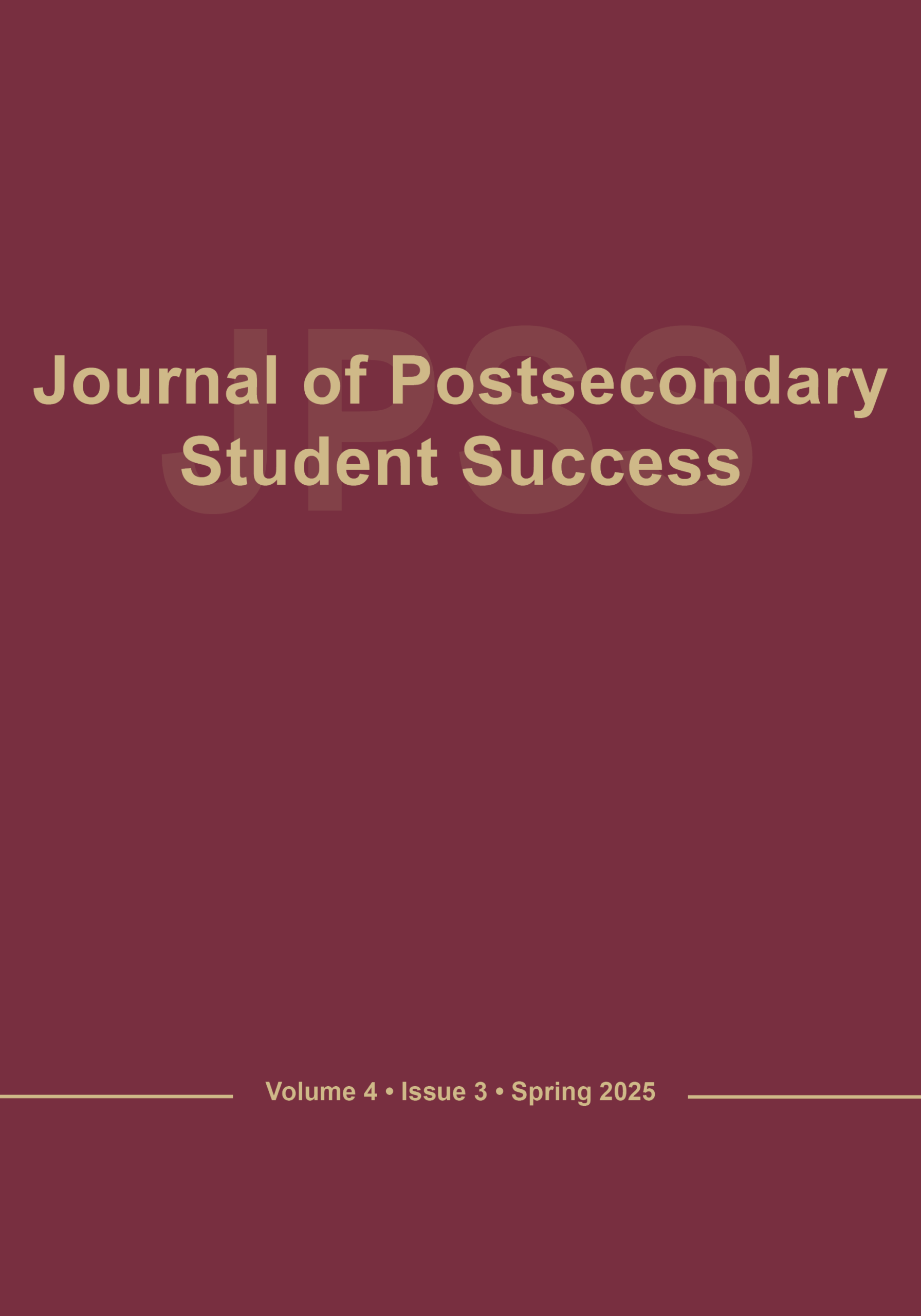
How the game is played: Low-income students’ experiences with career development programming.
Perez, R. J., Hypolite, L. I., Bettencourt, G. M., & Hallett, R. E. (2025).
Briefs

Advancing major and career success for at-promise student success.
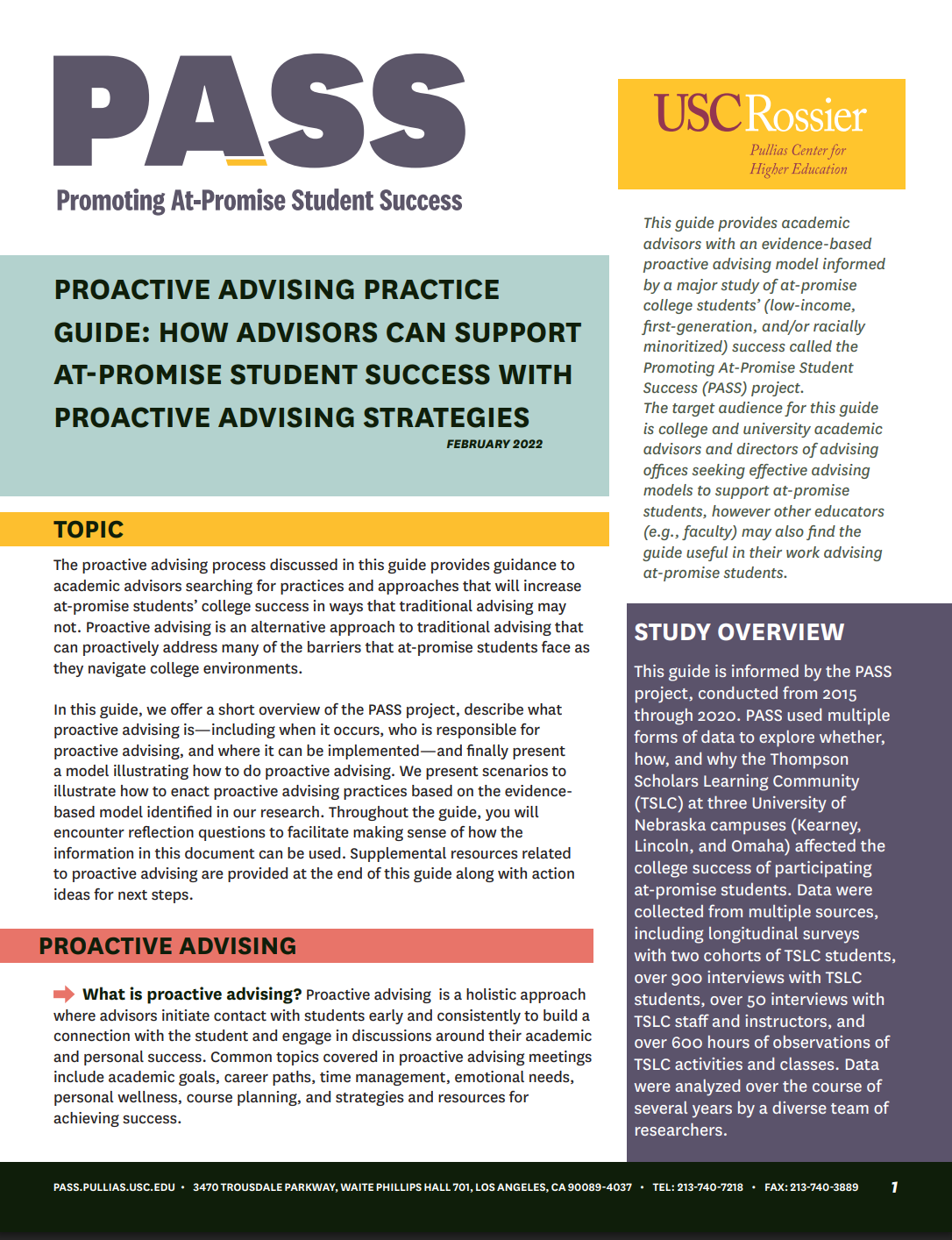
Proactive advising practice guide: How advisors can support at-promise student success with proactive advising strategies.
